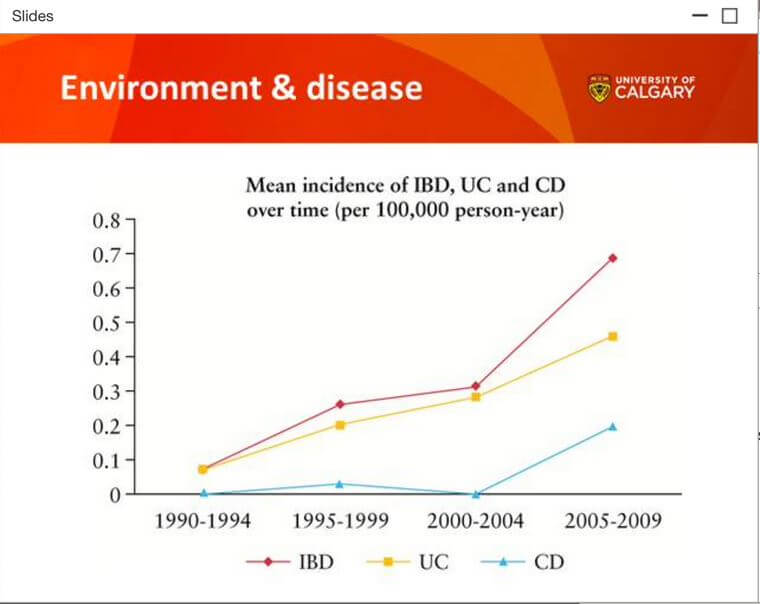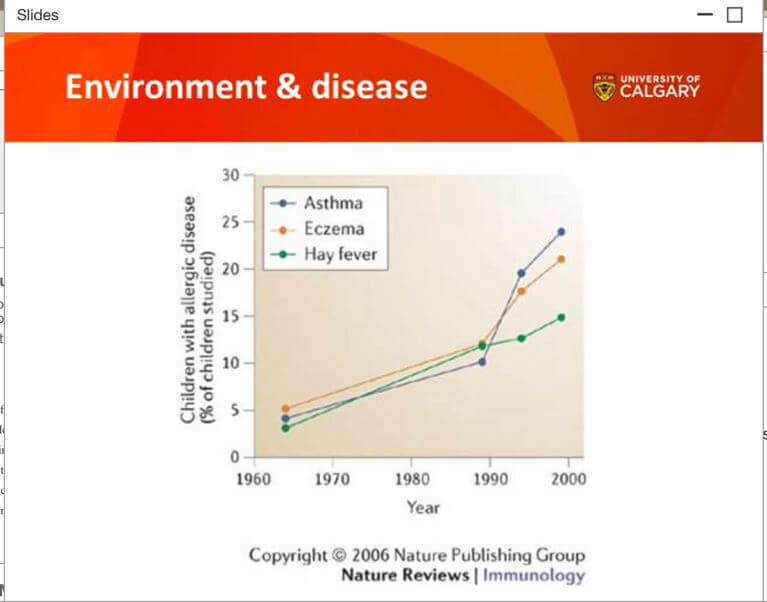Having recently learned about the Microbiome, I’m fascinated to learn more.
We all have trillions of bacteria in our body, much of it in our gut. That’s not a bad thing. Scientists are telling us that having a healthy microbiome can stave off a variety of diseases.
It’s a startling fact that the microbiome contains more cells than the rest of our bodies. We are indeed a super-organism.
Our microbiome forms at birth and is heavily influenced by the type of birth. A natural birth imparts the mothers biome on the child. A cesarean imparts more of the Doctors or Nurses microbiome. We have a small window of opportunity to develop a healthy microbiome. By the time a child is 5 that window has past.
Why is this important? Since the mid-90’s we’ve experienced a huge growth in chronic inflammation and the diseases associated with it. The list of diseases associated with inflammation is long and varied:
- heart disease
- diabetes
- metabolic disorders
- obesity
- arthritis
- autism
- Alzheimer’s
- Parkinson’s
- depression
- Cancer
- Crohn’s
Incidence of Bowel disease, Colitis and Crohn’s
Incidence of Asthma, Eczema and Hay Fever
What affects the microbiome?:
- diet. A diet high in fiber, whole foods and prebiotics (food that bacteria love) has a positive impact. So do Probiotics.
- type of birth
- exposure to antibiotics. Antibiotics have a purpose but should not be administered broadly and without cause. Antibiotics kill bacteria including those that are beneficial in our gut.
- strangely, an extremely clean environment growing up can negatively impact our microbiome.
- breast milk vs formula
If you want to learn more take a look at this TED talk on the microbiome.
Sources:
Kathy McCoy is a professor in the Cumming School of Medicine and director of the Western Canadian Microbiome Centre
Ian Lewis is an assistant professor and AIHS Translational Health Chair-Metabolomics in UCalgary’s Faculty of Science. His research focus is on investigating the connection between metabolic adaptation and virulence of human pathogens, with the ultimate goal of developing new diagnostic methods to identify high-risk patients and novel antimicrobial therapies to control infections.
Paul Kubes is a professor in the University of Calgary’s Cumming School of Medicine, and director of the Snyder Institute for Chronic Diseases. His research interests are in models of acute and chronic inflammation, studying how different leukocytes (neutrophils, monocytes and lymphocytes, etc.) traffic to sites of inflammation, and the role of different immune receptors in the initiation of inflammation.
Dr. Mitra Ray. With over 30 years of experience, she has helped people achieve remarkable success in looking and feeling better. Dr. Ray received her Bachelors of Science at Cornell University and her PhD from Stanford Medical School. She is the recipient of many NIH grants and the Young Investigator Award from the Federation of American Societies in Experimental Biology. Her research has been published in such prestigious journals as Science, Proceedings of the National Academy of Sciences and the Journal of Cell Biology. Audiences in 4 continents have enjoyed her award winning books, audios and lectures on health, beauty and longevity.


This is really interesting information!!
Thanks Tana. It seems our Microbiome is the key to health.